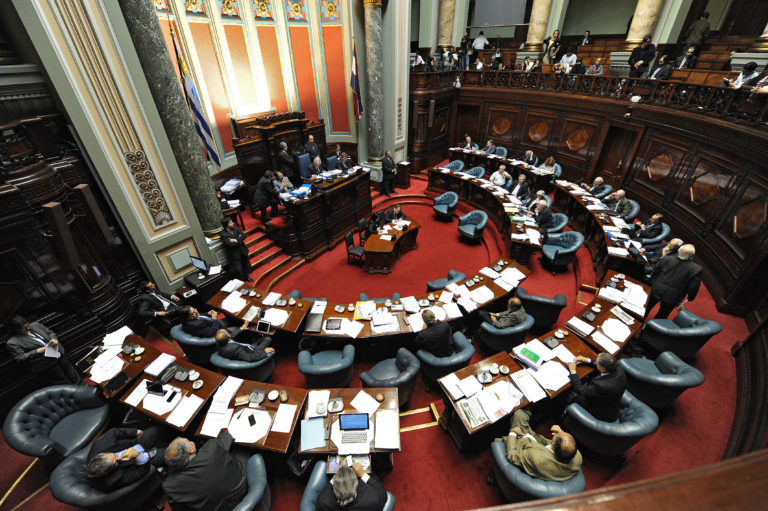(AMARC/IFEX) – In 2006, the Radio Broadcasters Association of the Interior (Asociación de Radios del Interior, RAMI), acting in the name of the privately-owned radio stations it represents, accused the La Quimera (106.9 FM) community radio station of carrying out illegal activities. La Quimera is based in Atlántida, in the department of Canelones. In her […]
(AMARC/IFEX) – In 2006, the Radio Broadcasters Association of the Interior (Asociación de Radios del Interior, RAMI), acting in the name of the privately-owned radio stations it represents, accused the La Quimera (106.9 FM) community radio station of carrying out illegal activities. La Quimera is based in Atlántida, in the department of Canelones.
In her defense of the station, La Quimera’s lawyer Marina Morelli prepared a strategy that included assistance from the community in the form of hundreds of signatures in support of the station.
According to a La Quimera press release, Morelli’s main line of argument was that “RAMI had no authority to take action in this matter since it is a cultural and professional association that was attempting to act as a sort of comptroller, confiscating materials, identifying individuals, searching facilities, etc., without giving prior notice, acting as if it were part of the justice system and attempting to carrying out actions that are the exclusive prerogative of the Communications Services Regulatory Unit (Unidad Reguladora de Servicios de Comunicación, URSEC).”
On 6 November 2006, Atlántida Justice of the Peace Karina Dennis ruled against RAMI on the basis that the association did not have the authority to take action against La Quimera. RAMI then appealed the decision and began a second claim before a higher court.
On 13 June 2008, La Quimera was notified that the initial ruling by Justice of the Peace Dennis was upheld by the higher court, which stated that, “the party is a professional association of privately-owned radio stations, not a public institution in the interior of the country, and, as such, the decision is upheld ( . . . ), in the sense that the party does not have the authority to act as a comptroller, which is a role that the law expressly reserves for the URSEC.”


